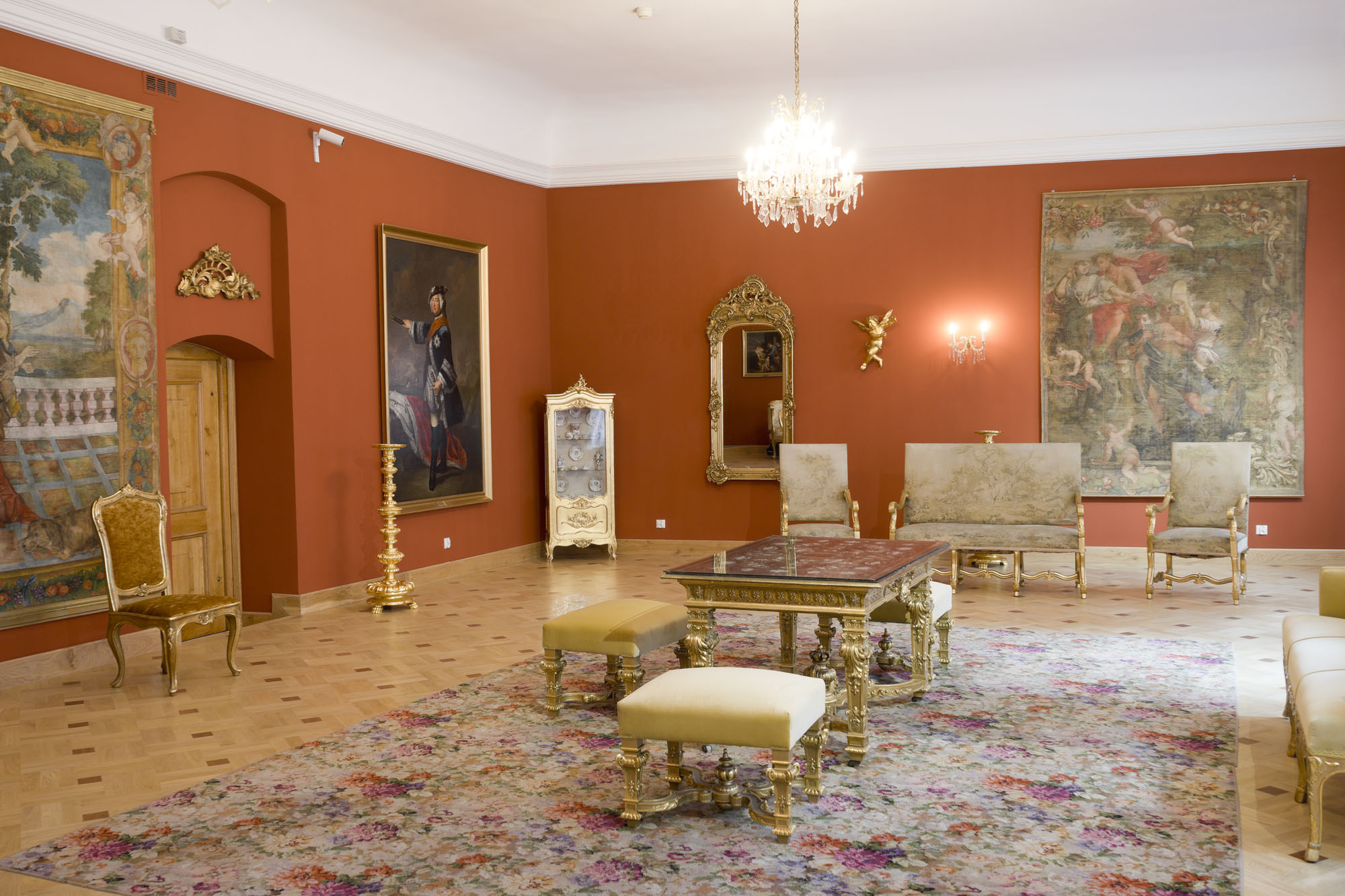The Museum of the Kłodzko Land is located in the baroque house of the former Jesuit boarding school (currently the Bolesław I the Brave High School), which was under construction from the 1620s until mid-18th century. It was designed and built by the most renowned architects of the era – Carlo Lurago and Andrea Carove.

The Kłodzko Museum was opened in 1963. It was initially located in the building of the former Kłodzko garrison command centre, which stands near the Town Square in the row of tenements at the feet of the fortress. Its first director was Wacław Brejter, a painter and graduate of the Kraków Academy of Fine Arts, who was born in Lvov. After several years, which produced numerous major exhibits (including “A City beneath the City” and “Ten Centuries of Kłodzko“), the museum was forced to relocate because the building was in danger of collapsing due to the collapsing undergrounds of Kłodzko’s Old Town. The collections were relocated in 1968 to a renaissance manor in Jaszkowa Górna. In 1971, the city donated the current building at Łuksiewicza 4 to serve as the museum.
The building underwent extensive renovations over the years 1976-1986, which returned it to its past glory and preserved all historical elements – the stylish elevation and the initial architectural arrangement and furnishing – and adapted it for the purposes of the museum. The new home of the Museum of the Kłodzko Land was opened in December of 1986.
The former refectory of the boarding school on the ground floor is now the location of the museum’s library and its beautiful interior and rich collection of publications about and from the region. The baroque “Gold” Salon, the concert hall (in the former chapel of Saint Aloysius Gonzaga, the school’s patron), and the spacious exhibit rooms are located on the first and second floors.
The concert hall is decorated with a copy of the gothic Madonna of Kłodzko painting from mid-14th century, which was funded for the Kłodzko church by archbishop Ernest of Pardubice, a man with strong ties to the city (the original painting belongs to the Gemäldegalerie in Berlin). The newly added building segments are used for storage space and museum workshops
There is a lapidary in the inner courtyard.
Visitors can also see the medieval undergrounds, which are over 6-metre deep and present the everyday life of Kłodzko in the past.
The Museum of the Kłodzko Land holds rich collections of historical, archaeological ethnographical, artistic, and environmental artefacts associated with the region. It also has collections of Silesian clocks, artistic glass, antique coins, tin, paintings, graphics, sketches, and maps and plans of the Kłodzko region, which are presented in temporary or permanent exhibits. The temporary exhibits also include the accomplishments of contemporary artists associated with the region.
The Museum is used to host concerts, exhibits, conferences, and scientific seminars; it is also involved in educational, promotional, publishing, and research activity.
Permanent exhibits:
From the history of Kłodzko
The exhibit is dedicated to the thousand-year history of Kłodzko. The city’s history, from the first mention in the “Chronicle of the Czechs” by Cosmas of Prague to the “millennium flood” in 1997, is presented in the undergrounds and on the ground floor of the Museum.
The eyes of time. Mechanical clocks popular in Silesia in the 19th century and early 20th century
The exhibit includes grandfather clocks, cabinet clocks, box clocks, mantel clocks, sundials, as well as pocket watches and music boxes.
Contemporary artistic glass made in Kłodzko compared to the glassmaking tradition of the Kłodzko Land
The exhibit presents the historical development of the glassmaking industry in the Kłodzko Land between mid-14th century and the 1990s and a collection of over 200 unique works of art made by the glass designers and artists of the Kłodzko Land and workers of Lower Silesian glassworks after 1945.
 English
English  Polski
Polski  Deutsch
Deutsch  Český
Český 

